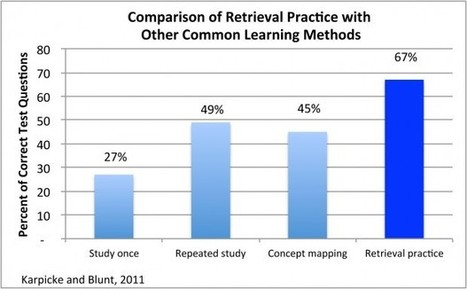Humans thrive on visual stimuli, and interaction. We don’t want to hear about the latest tablet, or even read an article about it. We want to see it for ourselves. More than that, we want to experience it for ourselves. We want to press all the buttons, test out the apps, and personalize every feature. …
|
|
Scooped by Beth Dichter |
Research tells us that visuals are an important element of learning, and that when visuals are used in classrooms, yet many classrooms are based on text. This post looks at three areas:
* Bringing Active Learning Back to the Classroom - How much of the time are the learners in your class actively participating as compared to passively listening?
* Embracing Visual - Visuals help many learners understand complex subjects. Experts in many fields can look at images and quickly learn complex information. Are you teaching your learners visual skills?
* Retrieving Practice - "By combining visual training with active learning, students can go from novice to expert in far less time than with traditional study methods."
As many of us prepare to return to school embracing visuals and teaching our students how to interpret visuals has the potential to promote better understanding. This post provides some great pointers and you will find a link to the original research.



 Your new post is loading...
Your new post is loading...








Seems like a good idea.